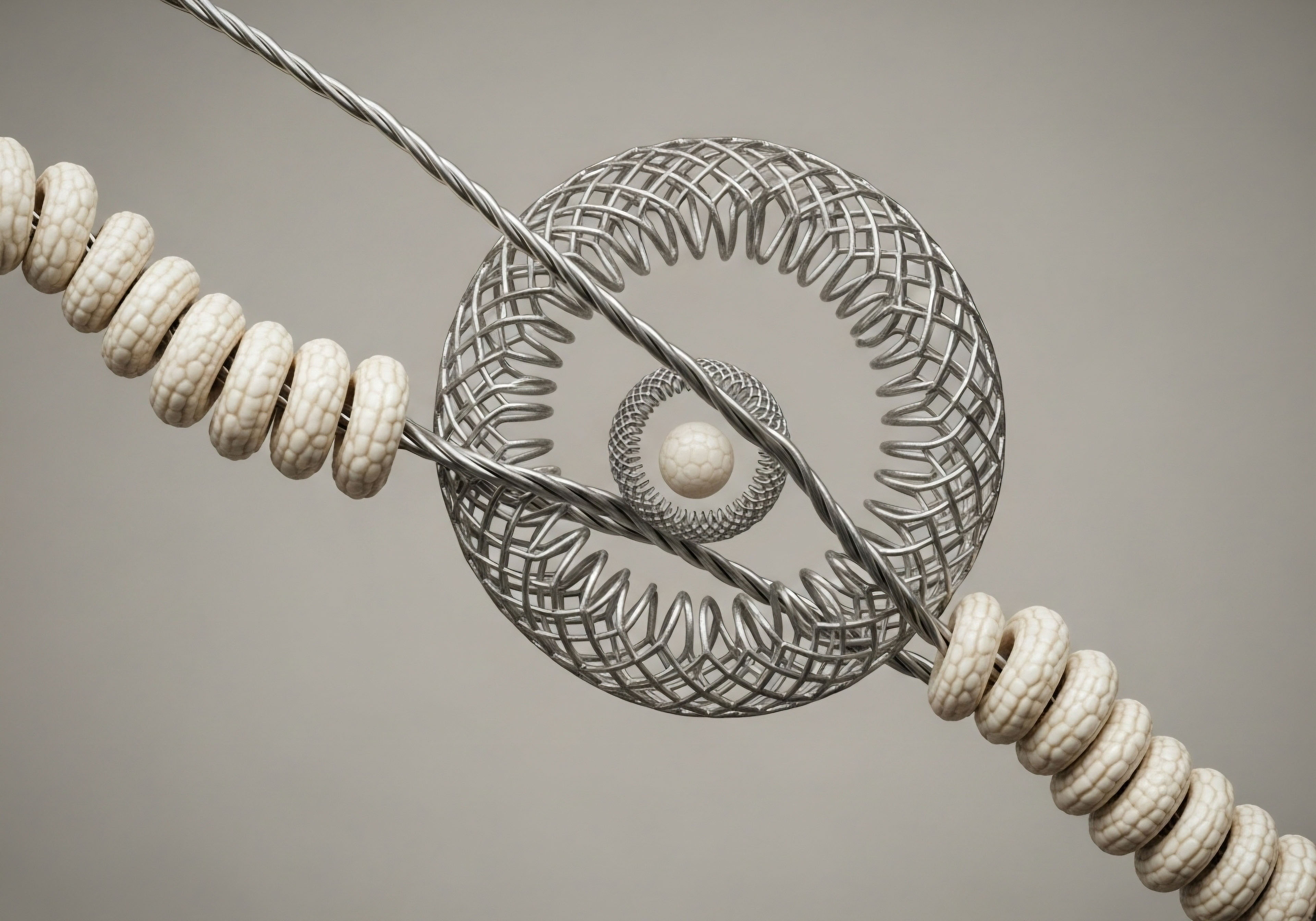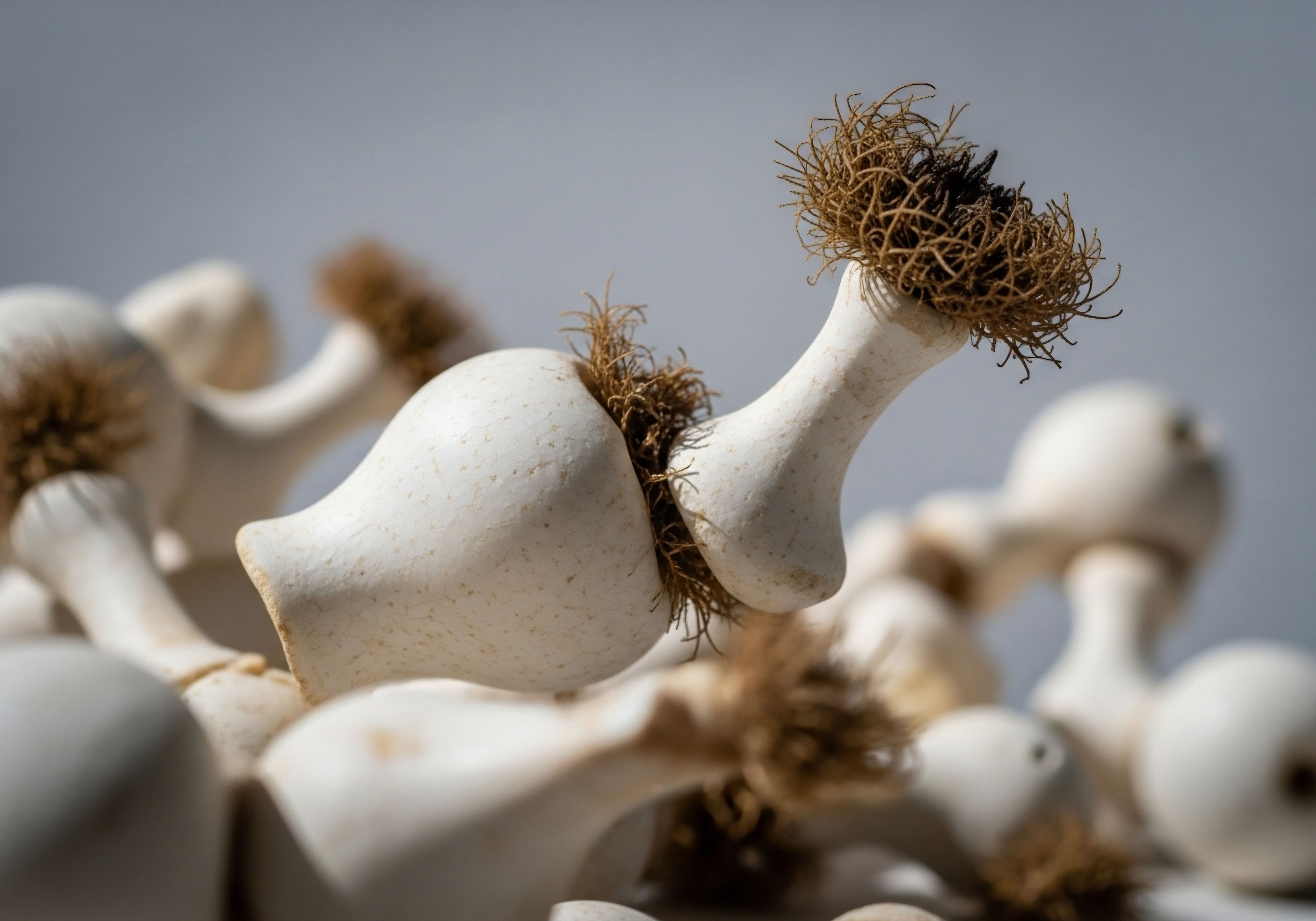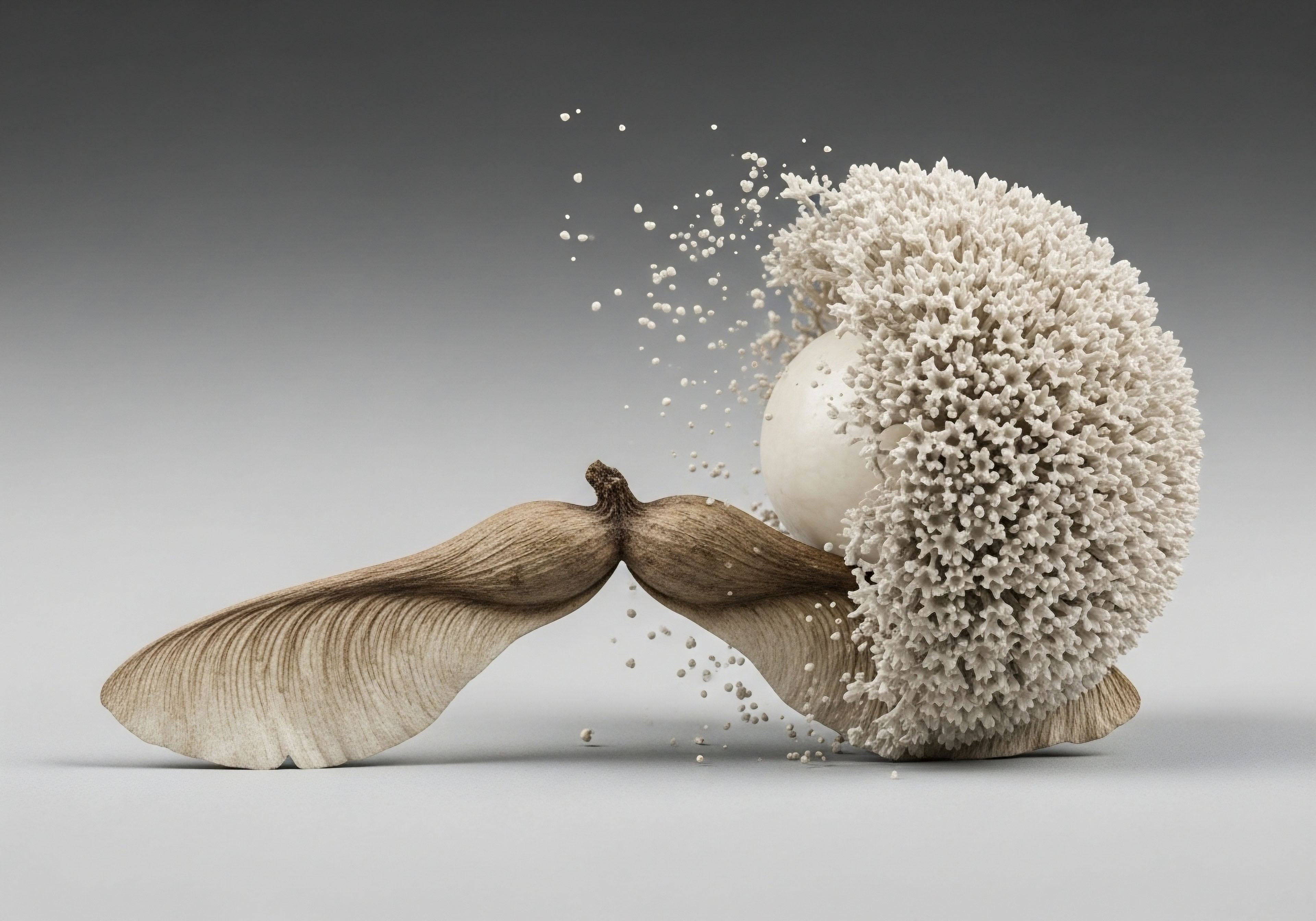

The Biological Cost of Comfort
Your brain is engineered for challenge. For millennia, it operated within a system of acute, intermittent stressors that honed its chemistry for focus, resilience, and drive. Modern life, with its climate-controlled environments and predictable routines, has largely eliminated these natural triggers. This constant state of thermic neutrality creates a dull, low-grade hum of cognitive static.
You feel it as midday brain fog, a lack of crisp focus, or a diminished capacity for sustained motivation. These are performance blockers, signals from a system that is under-stimulated and defaulting to a baseline of mediocrity.
The architecture of your mental performance is governed by powerful neurotransmitters. Norepinephrine sharpens focus to a razor’s edge. Dopamine fuels the engine of motivation and reward. Without the primal environmental cues that command their release, their production can wane, leaving your cognitive dashboard running on fumes.
Reclaiming your mental edge requires a deliberate intervention, a strategic reintroduction of an ancient stressor to recalibrate the very chemistry that dictates your capacity to perform. It involves choosing a momentary, controlled discomfort to reset your neurological operating system for clarity and vigor.


Triggering the Primal Switch
A cold shower is a precise physiological tool. Its power lies in its ability to initiate a powerful and immediate neurochemical cascade, effectively flipping a switch from a state of lethargy to one of high-alert cognitive readiness. This is a direct manipulation of your autonomic nervous system, shifting it instantly into a sympathetic “fight-or-flight” state. This activation is the catalyst for a profound internal recalibration, driven by a surge of performance-enhancing molecules.
The primary actor in this process is norepinephrine. When the cold water makes contact with your skin, thermal receptors send an urgent signal to the brain, which responds by flooding your system with this potent neurotransmitter. Studies have demonstrated that cold water immersion can increase norepinephrine levels by a staggering 530% from baseline.
This chemical is directly responsible for vigilance, focus, and mood. The mental clarity and alertness experienced after cold exposure are a direct consequence of this massive norepinephrine release. It effectively scours away mental fog, preparing the brain for high-stakes thinking.
A controlled study on cold water immersion at 14°C (57°F) documented a 530% increase in plasma norepinephrine and a 250% increase in dopamine, highlighting the profound and immediate hormonal response to cold stimulus.
Simultaneously, the brain releases dopamine, the neurotransmitter of motivation and reward. Research indicates cold exposure can elevate dopamine concentrations by up to 250%. This sustained increase provides a powerful mood-boosting effect and enhances your capacity for goal-directed behavior throughout the day. It creates a foundation of drive that is independent of external stimulants like caffeine. You are tapping into your own endogenous pharmacy to manufacture the very chemicals required for peak mental output.

The Protocol for Cognitive Recalibration
Executing this protocol requires precision over brute force. The goal is to activate the system, delivering a clean signal without overwhelming it. This process trains your body’s stress response systems, building resilience over time. Adherence to a structured approach ensures optimal hormonal response and long-term adaptation.
- Initial Adaptation Phase ∞ Begin by finishing your normal warm shower with 30 seconds of cold water. Focus on controlling your breathing as the initial shock hits. Your primary objective is to override the gasp reflex and settle into a steady pattern of exhales. Maintain this practice for one week.
- Duration Extension ∞ In the second week, increase the cold water exposure to one full minute. Continue to prioritize calm, deliberate breathing. The intensity of the cold is the trigger, but your controlled response to it is what trains your nervous system’s resilience.
- Optimal Activation ∞ The target duration for a significant neurochemical response is between two and three minutes. Once you can comfortably manage this duration, you have established a consistent and effective protocol. The water temperature should be uncomfortably cold but safe; a temperature around 60°F (15°C) is effective.
- Protocol Consistency ∞ The benefits of deliberate cold exposure are cumulative. A consistent practice of 4-5 sessions per week creates a durable shift in your baseline neurochemistry and stress resilience. The total weekly exposure should aim for around 11 minutes to achieve desired health outcomes.


Mastering the Morning Minute
The application of this protocol is strategic. You deploy it at the precise moment you wish to take command of your day ∞ the morning. Initiating this neurochemical cascade immediately upon waking sets the cognitive and metabolic tone for the subsequent 12-16 hours. The surge of norepinephrine and dopamine provides an immediate and sustained uplift in energy and focus, creating a powerful alternative to stimulant dependence. It is the definitive method for winning the first hour of your day.
You will recognize the effects within the first few sessions. The initial payoff is an undeniable state change ∞ a rapid transition from grogginess to sharp, clear-headed alertness that persists for hours. This is the acute response. Within two to three weeks of consistent application, the chronic adaptations become apparent.
Your baseline mood elevates. Your resilience to unexpected daily stressors improves, as you have systematically trained your nervous system to handle acute shocks with composure. The protocol becomes relevant the moment you decide that your default mental state is insufficient for the demands of your ambitions.
Participants in cold-water immersion studies report feeling more active, alert, attentive, proud, and inspired after just a five-minute session.
Consider this protocol your primary tool for days requiring peak cognitive output. Before a critical meeting, a deep work session, or any performance where mental acuity is paramount, the cold shower is your biological primer. It ensures the essential neurotransmitters for focus and drive are saturated in your system.
The long-term vision is the cultivation of a nervous system that is less reactive and more controlled, and a brain that operates from a higher baseline of clarity and motivation. This is when the practice transitions from a simple habit into a core component of your personal performance architecture.

Beyond the Discomfort Principle
The human organism is a system that strengthens in response to intelligently applied stressors. Deliberate cold exposure is a potent form of this principle, known as hormesis. By stepping out of thermal comfort for mere minutes, you are sending a powerful signal deep into your cellular and neurological machinery.
You are instructing your body to become more robust, more resilient, and more efficient. This is a fundamental shift from a passive existence to a proactive engagement with your own biology. The control you exert over your response to the cold is a direct reflection of the control you can exert over your own mental and emotional states. It is the foundational practice for anyone serious about engineering a superior version of themselves.



